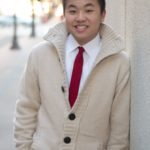Teeb Lee has always felt different from the other men he has known; never naturally gravitating towards what he had been taught it means to be masculine. In his story he shares how his perceptions of what it means to be a man, and a Hmong man, has changed over time and how he wants to help society redefine traits that have been marginalized for so long. This story is part of MALA’s scholarship essay contest. To see more scholarship essays, click here.
During my sophomore year of high school in 2016, I attended a leadership conference at the University of Minnesota-Twin Cities campus hosted by the Hmong Minnesota Student Association. I attended a workshop on masculinity, manhood and violence facilitated by ManForward, a local organization in the Twin Cities that works with Asian men to end gender-based violence.
I met Shinaah Thao, who later became my mentor. Shinaah and his mentor Pheng Thao were the ones presenting the workshop. Shinaah presented his story about his abusive father. He also told stories of men’s inaction and silence when other men abuse their power and privilege. Upon hearing his story, I felt as though teardrops were about stream down my face, but I resisted and held back the tears. I had always been taught and believed that to be strong is to not cry and to stand up for those that cannot be strong.
After some time had passed, and I was more familiar with ManForward, I was in a car with Pheng and two other ManForward folks. Pheng tested me on my knowledge of what I had learned while being in ManForward. Pheng asked: “Teeb, how does masculinity show up in your life?” I was not able to answer him, so Chris Yang, another ManForward member, gave his example to help me: “For me, men typically drink when hanging out and have conversations about either sports or girls.” After Chris spoke, my mind went blank. Chris became a blur, and my eyes stared into the open field of the Wisconsin countryside, an orange gleaming light coming from the sun. Now, the car was nothing but silent to me except Pheng’s question that replayed over and over in my head. In the end, I still could not give my own example of what masculinity looked liked.
In middle school, my group of friends consisted mainly of girls. Whenever I had a problem, I went to the girls, seeking their comfort and advice. I was always around them, which made me different from the other boys. I was more involved in leadership programs than sports, roles that included having deep, meaningful conversations such as why are there so few young Hmong leaders and men doing community work and giving back.
Through ManForward it became clearer to me that gender is much broader than what I thought. Although I identify as a man, I express both masculine and feminine expressions, but that does not make me any less of a man. I was often made fun of by my brothers because I acted feminine and did “feminine” things like putting on make-up and cross-dressing. In fact, I was once thought of as gay because of my feminine behavior and expressions. In my life, I have never seen my dad cry except during family events when he was drunk weeping to my cousins about having no daughter-in-law at the time, how he wanted a big house, and what other people’s sons are doing for their parents.
The concept of what a good Hmong man is versus a bad Hmong man is rooted in the ways patriarchal culture is practiced. In the Hmong community, to be a man means having to participate in family gathering, chopping up meat, learning the traditional ways of paying respect by bowing down to the elders, drinking for them when they cannot drink anymore, and sitting with them at the table is earned. I have always felt uncomfortable when I am asked to participate in the practice of drinking and bowing down to the elders. Pheng taught me that there might be consequences, such as being rejected and/or backlashes for not wanting to practice these. But paying respect to the elders can be done in other ways besides bowing down. I have always known that I do not meet the ideal of a Hmong man, but if I did live up to the expectations then I would only be living in others’ expectations and not my own.
ManForward made me realize how important it is for men to create a space for men to feel vulnerable together and not rely on women to create those type of spaces for men. I am more than just a man. I am both masculine and feminine. I will continue to challenge the status quo of masculinity by rejecting the notion of what mainstream masculinity is; question why men must act a certain way, speak a certain way and be fearless when being questioned by other men.
Masculinity and feminine is only a social construct created by all of us. Men should be able to express whatever expression they want and cry as well. Crying is one best way to release our sorrows besides laughing. Strength should be more than physical strength and also include emotional strength, and crying shouldn’t take away from that. Although I am still unable to give my own definition of what it means to be a man and Hmong man, I know I shouldn’t let others define it for me. In each one of us there is more to us than what society labels us as, and how we should act is up to each of us to redefine.


